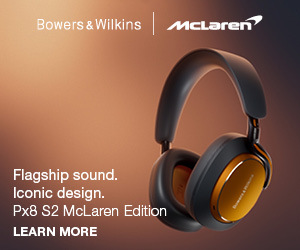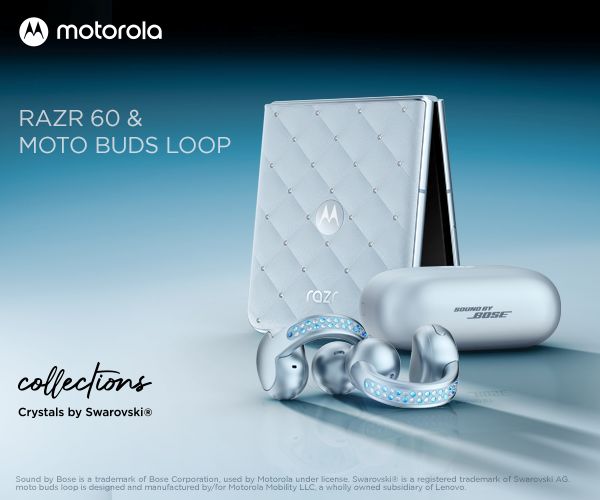The Nothing Headphone 1 doesn’t look like typical headphones – retro yet futuristic, like a Star Wars stormtrooper would wear. The transparent ear cups imitate old cassette tapes.
There is nothing ‘normal’ about Nothing design cues, and that is what it wants. A quick straw poll of 20 people from 30 to 84 years old polarised the group. Half said they would not be seen dead in them, and the other half said design was not an issue if the ‘cans’ stacked up feature and price-wise. But all said they were happier with a more traditional design, regardless.
Nothing does not care so much as its market is the Gen Beta (2010+), Z (1995+) and Millennials (1980+). Our retail spies at JB are happy with sales, but it is not really taking away from the traditional brands.

Read on if you want
- Something with a different design
- USB-C Charge and listen (few premiums can do this)
- Good but not class-leading hybrid ANC
- Good but not class-leading music quality
Australian Review: Nothing Headphone 1 as of 14 August 2025
Note: The proper name is Nothing Headphone (1), but SEO does not like the brackets.
| Website | Product Page FAQ |
| Price | $549 |
| From | Nothing Online, JB Hi-Fi, Optus and KEF. |
| Colours | Black or White |
| Firmware | Firmware: 1.0.1.67 App version 28 July 3.4.2 Android or iOS |
| Warranty | 12-months |
| Company | Nothing is a UK-based, youth-focused (Gen X, Y and Z) company founded by Carl Pei in 2020, who co-founded OnePlus (OPPO/BBK stable). Another founding partner is Teenage Engineering, primarily responsible for the brand’s design aesthetic and its products. |
| More | CyberShack headphone news and reviews |
Ratings
We use the following ratings for many of the items below. CyberShack regards 70/100 as a pass mark. You can click on most images to enlarge them.
- Fail (below expectations), and we will let you know if this affects its use.
- Pass(able) rating that is not as good as it should be.
- Pass (meets expectations).
- Pass ‘+’ rating to show it is good, but does not quite make it to Exceed
- Exceed (surpasses expectations or is the class leader).



First Impression: Different
I am not going to reveal which ‘looks’ camp I am in because this is an objective review based on numerous tests to help compare apples with apples. Let’s just say that the sound quality overrides any potential stylistic issues. There has been considerable thought put into the design.
They are tuned by British speaker maker KEF, which is far better than no tuning. We will discuss that later.
The padded headband and extendable arms (to fit different-sized heads) are plastic (albeit very hard) and feature stepless adjustment. Unlike metal arms, the jury is out on longevity, but it is safe to say it will last the expected life of the headphones.
The ear shells are anodised silver (White) or black (Black) aluminium. Great material, but it is easily scratched. They are attached by metal hinges that allow them to fold flat. But they don’t fold in, and the hard case is 220 x 52 x 220 mm x 246g.


The ear pads are PU and not user-replaceable. Given that most premium headphones are, and I have had to replace pads on most brands, this is an issue. Nothing says it is looking into this issue.
The outer shell is meant to resemble a cassette tape and is covered in transparent plastic. Ditto for scratch ability.
What I do like (and it takes a bit of muscle memory to get used to) are the physical controls versus capacitive touch on premium headphones.
Comfort – Pass
These are 3.85 x 78 x 189.25 mm x 329g – heavier than most.
- Sennheiser Momentum 4, 293g
- Sony WX-1000XM6, 254
- Bowers and Wilkinson Px7 – 300g
- Bose QV Ultra, 254g
- JBL Tour One, 272g
- Soundcore Space One Pro, 286g
- Sonos Ace 312g
- Apple AirPods Max, 385g
For travel, I use an old pair of Sennheiser PCX 550-II at 227g, and my wife uses the Bose Ultra at 254g. We can wear these for long-haul flights without fatigue or overheating.
Some of our testers said they were comfortable (females), and others (males with larger heads) said they tended to pinch below the ear. A few hours of continuous use was about the maximum without a break.
The head clamping force is slightly high, but it should wear in after several uses.
Nothing X App – Pass
It’s a big app at 139 MB. It is missing an ear test and seal test.






ANC: Pass+
It has Hybrid Active Noise Cancelling, meaning it uses both passive (ear cups) and three levels (low, medium, and high), which are set in the app or via the button.
Tests
- 20-80Hz up to 20dB attenuation (low and mid bass)
- 80-300Hz 20%
- 300-3000Hz – up to 30%
- 3000Hz+ – passive isolation and ANC up to 42dB at 10kHz.
This is above average but not quite class-leading. It is more than enough for long-haul air travel and work environments.
Transparency mode: Pass
It allows external noise in and has some side tone for your voice (a bit artificial)
Sound: Pass+
Audiophiles will knock it because they can. Joe and Jane Average will love it as it has an 8-band EQ with +/- 6dB increments and four presets (Balanced, More Bass, More Treble, Voice). In addition, there is a 5-level bass enhancer. If ever there was a headphone that you could create ‘Frankensound’, this is it.
Once set, the EQ is stored on the headphone until you change it in the app. For Nothing fans, you can share QR codes for custom EQ sound profiles.
Test (EQ default)
We tested with BT AAC and USB-C 24-bit, 96000 Hz lossless. LDAC can be enabled in the App, but you must change it back to AAC if your host device does not support it. Battery life is affected by LDAC.
The key difference between AAC and USB is at the high treble end. AAC gets to 15 kHz and drops off a cliff, and USB is flat to 20 kHz to give you an enhanced feeling of presence – being there.
Our test with 3.5mm requires the unit to be charged.
This is a white noise test and pushes the speakers to their limits. It determines the native sound signature regardless of any EQ or presets.


| AAC | USB | |
| Deep Bass 20-40 Hz | Nil | Same |
| Middle Bass 40-100 Hz | Linear build from 40 Hz to 100 Hz | Same |
| High Bass 100-200 Hz | Reasonably flat but dips and then a linear built to 1 kHz | Same |
| Low Mid 200-400 Hz | Linear build to 1 kHz | Same |
| Mid 400-1000 Hz | Linear build to 1 kHz | Same |
| High-Mid 1-2 kHz | Flat | Same |
| Low Treble 2-4 kHz | Flat | Same |
| Mid Treble 4-6 kHz | Flat with a dip at 6 kHz | Same |
| High Treble 6-10 kHz | Dip at 7 kHz, then flattish but choppy | Dip at 7 kHz but not choppy |
| Dog Whistle 10-20 kHz | Flattish but choppy to 15 kHz, then drops off the cliff. | Flattish to 20 kHz and more controlled |
| Sound Signature type | It is predominately a warm and sweet signature (bass/mid boosted, treble recessed). The EQ can recess frequencies, not boost, so it can’t be neutral (nirvana). | It is predominately a neutral signature with some inconsistencies at 100 to 1000 kHz and a stronger treble. The EQ can recess frequencies and create any signature you wish. |
| Soundstage PCM stereo | It is quite wide – at least 10cm outside your head, which is highly unusual (and good) for closed-back headphones. | Same |
| Soundstage Spatial pettingly Dolby Atmos | The Spatial processing onboard only takes 2D, 2.0 and emulates a 3D sound stage. There is no clear channel definition, but it works OK for movies. Not for music! Height channels front to back – there is no lateral (side to side) sound object movement. Surround: Good faux surround | If you have a DA decoding host device, it can reproduce a 3D DA sound stage. Again, it is more about the ’atmosphere’ than music purity. Typical DA headphone experience. Far better over USB. |
| Head Tracking | You can select off, fixed or head tracking. It uses an accelerometer and a gyro to adjust the sound to your head orientation. Best for directional sound, like movies rather than music. If you enable this EQ does not work. | It is not subtle, especially if you move your head faster. I recommend leaving it off unless you are watching movies from a comfortable chair. |
| Volume | 80dB AAC | Up to 85dB, depending on the host device input. |
| Comment | If you are watching movies with any surround or spatial sound, you will get a nice effect, but it’s not really what true DA is capable of. | Same |
| Read | How to tell if you have good music – sound signature is the key (AV guide) | Same |
Physical controls: Pass+
It has a dial, paddle, and a user-customisable button, which we find far better than capacitive touch.


Pairing with a Nothing Phone (3) gives access to its Essential space features.
- ON/OFF Up/Down: Power Off/ On
- BT Pairing (Semi-concealed button below right ear cup): 2-second hold until the white LED blinks.
- Roller: Roll right/left: volume up/down. Press: play/pause. Press & hold: ANC / transparency
- Paddle: Push right: next track/answer call. Push left: previous track/reject call. Hold right: fast forward. Hold left: rewind
- Button: nothing OS. Press: channel hop. Hold: smart assistant
IP: Pass
It has IP52, which is better than nothing! Few headphones rate higher.
BT 5.3: Pass
It has Google Fast Pair and Microsoft Swift Pair support.
BT codecs are SBC, AAC, and LDAC (if enabled and Android only). USB Lossless allows charging and listening in 24-bit, 96000 Hz lossless.
The 3.5mm requires the headphones to be charged.
Hands-free: Pass
It has three mics per cup (a total of six) but only uses four with AI-powered Clear Voice Technology. We feel it does not live up to its name, but future firmware updates can improve this.
The call quality is OK, not outstanding. Callers commented that they still heard wind, and my voice was slightly artificial.
Battery: Pass+
It has a large 040 mAh battery and claims 80 hours of playtime without ANC and around 35 hours with ANC enabled. It also supports quick charging.
Sennheiser has 60 hours ANC.
Test at 50% BT 5.3 AAC
- Verified on BT AAC
- LDAC reduced this to 30/54 ANC on/off.
- 2 hour 10 minutes charge
- Fast charge 5 minutes for 2.5/5 hours ANC on/off
Gaming: (not tested)
Low lag mode in the app, but no details on lag reduction are given.
CyberShack’s view: Nothing Headphone 1 – unique style, good performance
They say beauty (or ugly) is only skin deep, and these polarising headphones hide some pretty good tech. Nothing has done well. It’s a premium BT/ANC headphone that Joe and Jane Average will love.
Retro design is a head turner, but most older buyers will opt for the safe designs.
Nothing is like a David here in Goliath land. In various ways, it does not quite meet its competitors.
- $698 Sony WX-1000XM6 (review to come – no aptX). The $479 WH-1000XM5 are on runout.
- $349 (on runout) Sennheiser Momentum 4 (superior music, USB-C charge and play, and aptX) Sennheiser Momentum 4 BT, ANC over-the-ear headphones – how do you improve on perfection?
- $649 Bose QuietComfort Ultra (Best ANC)
- Sonos Ace (far better Dolby head tracking and spatial) Sonos Ace – Superior over-the-ear, BT, ANC headphones for Sonos lovers
- $699Bower and Wilkins Px7 (superior music, USB-C charge and play, and aptX) B&W Px7 S3 BT/ANC over-the-ear headphones – next Gen of S7 excellence
- $899 Apple AirPod Max (sort, never used an Apple product)
- $549 JBL Tour One M3 Smart TX BT/ANC over-the-ear headphones – nothing compares
- $449 (on special $349) Soundcore (Anker) Space One Pro (review coming and potentially game-changing design)
So, while users’ reviews have been positive, most say that you can get more for less with other brands.
Nothing Headphone 1 Rating 82/100
- Features: 85 – all the essential premium features, including USB-C and 3.5mm
- Value: 80. There are better for a little less
- Performance: 85. I don’t mind the warm and sweet sound signature, but I found myself constantly playing with the EQ to suit my tastes more. The lack of high treble on SBS/AAC can make music seem a little flat.
- Ease of Use: 80. The App needs more, including an ear seal test and a hearing test. The EQ is way more than you need and makes it too easy to get a ‘Frankensound’.
- Design: 80. If you like it, then buy it. If you don’t, then don’t.
For your reference (CyberShack Ratings
- Bose: 84
- Sony: 88 (new model may score even higher)
- Sennheiser: 89
- Sonos: 80 (still a work in progress)
- JBL: 90
- B&W Px7 S3 87
CyberShack Verdict
Nothing Headphone 1 over the ear, BT, ANC
$549












Comments